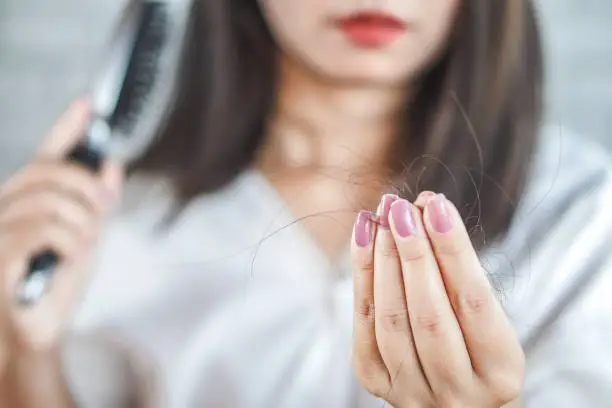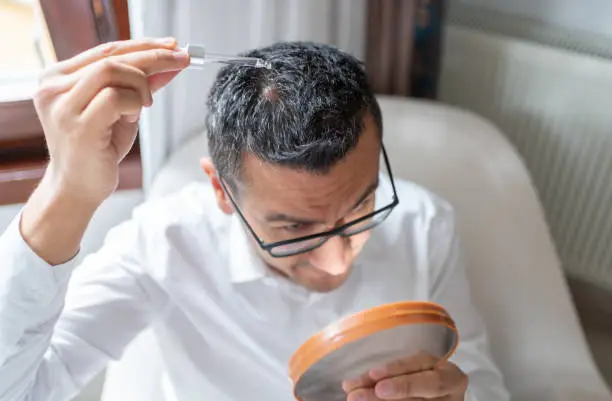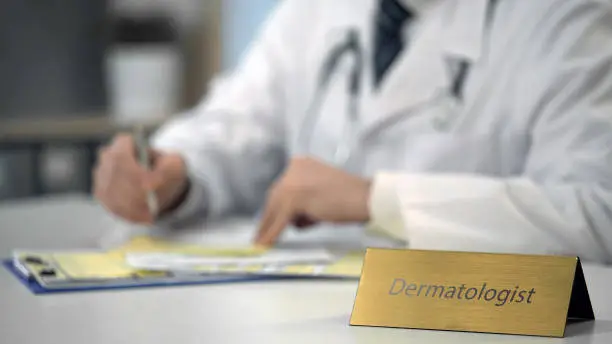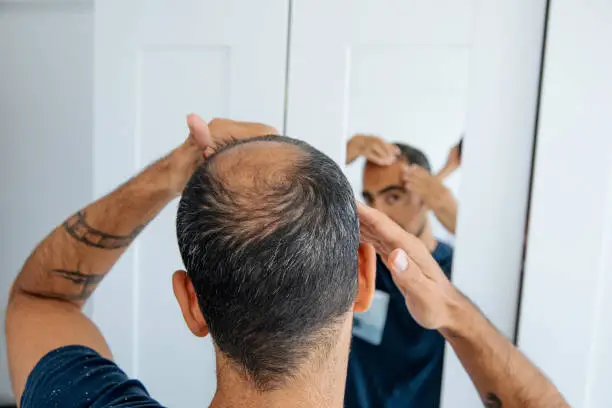Hair loss is an issue that plagues millions of individuals across the world. From thinning over time to unexpected bald spots, hair loss can be an emotional and psychological ordeal. Hair loss has a multitude of causes, ranging from genetics and hormonal imbalances to medical illnesses and malnutrition. In their search for an effective hair loss treatment, many seek out topical treatments, medications, or even hair transplants. But there is one thing that usually gets neglected, and that is the contribution of vitamins and nutrients towards hair health.
So, the question on everyone’s mind is: Do vitamins help with hair loss treatment? Let’s get scientific, see what the key nutrients are for hair growth, and consider how vitamin-based treatments can be used to enhance other types of hair treatment for hair loss.

The Role of Vitamins in Hair Health
Hair is one of the fastest-growing tissues in the body. However, it’s not essential for survival, so when the body lacks nutrients, hair growth is one of the first areas to suffer. Here are some of the most important vitamins involved in hair loss treatment:
1. Vitamin D
Vitamin D is crucial for healthy follicle cycling. Low levels of this vitamin have been associated with several types of hair loss, including alopecia areata. It helps stimulate old and new hair follicles, encouraging regrowth.
2. Biotin (Vitamin B7)
Biotin, also known as B7, is likely the most widely recognised hair vitamin. Biotin plays a major part in creating keratin, the protein structure that forms your hair, skin, and nails. If biotin levels fall below required amounts, symptoms of thinning hair, brittle nails, and dry skin occur.
Biotin deficiencies do not commonly exist, but supplementation may assist those who suffer from thinning hair from dietary problems or hormonal irregularities.
3. Vitamin E
As an antioxidant, Vitamin E assists in fighting oxidative stress, a cause of hair follicle damage. Research has indicated that individuals who experience hair loss tend to have reduced levels of Vitamin E in scalp tissue.
Adding this vitamin to your hair treatment for hair loss routine can improve scalp circulation and boost follicle health.

4. Vitamin A
Vitamin A is essential for cell growth, such as hair cells. It also assists skin glands in producing sebum, which lubricates the scalp and maintains healthy hair.
However, too much Vitamin A will have the reverse effect and cause hair loss, so moderation is necessary.
5. Vitamin C
Vitamin C helps in the synthesis of collagen, another important protein that contributes to hair strengthening. Vitamin C also increases iron absorption, and as iron deficiency is one of the most common reasons for hair thinning, Vitamin C is an important supporting player in hair loss treatment.
6. Iron and Zinc (Not Vitamins but Equally Important)
While not technically vitamins, minerals such as iron and zinc are essential in any hair health discussion. Iron assists red blood cells in bringing oxygen to hair follicles, and zinc maintains the oil glands that are found around follicles. Lack of both minerals can result in shedding and brittle strands.
Can Vitamins Alone Treat Hair Loss?
Millions of individuals worldwide are impacted by hair loss, not just their confidence and self-esteem, but their emotional stability as well. With shelves stocked full of shampoos, serums and supplements, it’s easy to wonder if something as simple as vitamins can provide a genuine solution. Many people try the natural or non-surgical route first, and vitamins tend to be the first place they look. But can vitamins be used alone to truly treat hair loss?

The answer isn’t so simple. While vitamins are an important part of healthy hair growth, they aren’t always a standalone hair loss treatment. Depending on the cause of hair thinning or shedding, supplements can prevent, support, or even reverse hair loss—but in some cases, they may simply not be enough on their own.
When to See a Specialist
If you are experiencing hair loss, it is easy to go straight to the local supplement and hope for the best. However, vitamins are beneficial in a lot of situations, it’s important to know when you need to look for professional help instead of treating the problem yourself.
1. Hair Loss Isn’t Improving After 3–4 Months
If you’ve been regularly taking vitamins and eating a nutrient-rich diet but haven’t seen any decrease in shedding or increase in thickness, it’s time to see a dermatologist or trichologist. They can perform blood tests to identify underlying issues, from thyroid problems to anaemia or autoimmune disease.
2. Sudden or Patchy Hair Loss
A sudden loss of hair, bald spots, or visible inflammation could be signs of a more severe condition like alopecia areata, lichen planopilaris, or scalp infection. These usually require medical attention and can get worse if not treated.

3. A Family History of Balding
If a pattern of hair loss runs in your family, there’s no harm in seeking help early. A specialist will be able to help you understand whether you’re a candidate for advanced hair loss treatments such as minoxidil, finasteride, PRP therapy, or even hair transplants.
4. You’re Experiencing Other Symptoms
Tiredness, brittle nails, skin problems, or mood changes can be signals of more general nutritional or hormonal imbalances. In these cases, vitamins can be useful help, but it takes a proper health checkup to reveal the complete picture.
If you’re considering adding supplements to your routine, it’s important to choose a brand that’s rooted in both science and transparency. That’s where Dermis Oracle comes in—combining evidence-based nutrients with advanced formulations designed to nourish your hair at every stage of its growth cycle.
FAQ’s
What is the most effective hair loss treatment?
The most effective treatment is based on the cause of your hair loss. For genetic hair loss (androgenetic alopecia), FDA-approved treatments such as minoxidil and finasteride are widely used. In other cases, treatments including PRP therapy, microneedling, low-level laser therapy (LLLT), and nutritional supplements can also be beneficial. A combined strategy tends to work best.
Can vitamins help with hair loss?
Yes, particularly if hair loss is due to a nutritional deficiency. Vitamins such as biotin, vitamin D, iron, zinc and B-complex ensure healthy hair development. But where more severe or hormonal hair loss is involved, vitamins are best utilised combined with other clinical hair treatments for hair loss.
How long does it take to see results from hair loss treatments?
It usually takes 3 to 6 months to show noticeable improvements. Hair grows slowly, about half an inch per month, so patience and consistency are the key. Supplements can take 8-12 weeks to reflect initial changes.
Are there side effects to hair loss treatments?
Certain treatments, such as finasteride, can result in side effects such as reduced libido in men. Minoxidil can cause scalp irritation or shedding in the initial weeks. Natural supplements will have fewer side effects, but need to be applied under professional guidance.
What is the No. 1 treatment for hair loss?
The top hair loss treatment most prescribed today is minoxidil, a topical solution approved by the FDA. It’s known to promote hair growth and reduce hair thinning. As a top hair treatment for hair loss, minoxidil is effective for both men and women and is commonly combined with other treatments such as finasteride for greater effectiveness. It is always a good idea to consult a dermatologist to make sure you get the best hair treatment for hair loss.